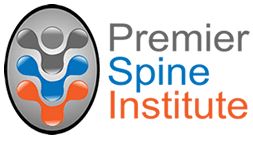Herniated discs can be so painful that ancient cultures often attributed the pain to demons.
Of course, modern science finds herniated discs have a much more prosaic cause. They’re often the result of thinning discs related to age or injury.
At Premier Spine Institute in Houston, Texas, orthopedic surgeon Dr. Bonaventure Ngu, MD, offers treatment for people with herniated discs.
What is a herniated disc?
Your spine comprises a series of rubbery discs tucked between each pair of vertebrae. These discs absorb shock when you move. But as with many other body parts, these discs start breaking down as we age, and that disc degeneration allows the jellied nucleus pulposus to push through the disc’s outer shell. When this gel-like substance pushes out of the disc, we call it a herniated disc.
This substance is a mix of water, collagen, a cartilage-like substance, and other materials, and it’s essential to your spine’s flexibility and stability because it acts as a shock absorber. As it pushes through the outer shell, you lose your cushioning, just like when your car’s shock absorbers wear away, and you feel every rock in the road. It can also cause pain if the nucleus pulposus pushes against a nerve or nerve root.
Symptoms of herniated discs
Many people have chronic pain in their lower back, neck, or shoulder. These herniated disc symptoms can leave you experiencing:
- Tingling
- Numbness
- Shoulder, neck, or arm pain
- Shooting sciatic pain
- Muscle weakness
Also known as slipped, ruptured, or bulging discs, herniated discs are common in middle age and usually occur in the neck or lower back, which experience the most motion.
Risk factors for herniated discs
One of the biggest risk factors for painful herniated discs is the modern sedentary lifestyle. Spending hours hunched over computers, followed by more time lounging on the couch, these habits contribute to weight gain, sluggishness, and back pain.
You’ve probably heard the phrase, “Use it or lose it.” This adage especially applies to your spine, as bodies were made to move. However, repetitive stress can cause a herniated disc, too, so if your occupation requires a lot of heavy lifting, or if you have a hobby where you repeat the same motions over and over, as in many sports, that can also lead to a herniated disc.It’s possible you inherited a propensity for herniated discs from your parents, but it’s far more likely that your lifestyle choices or occupation are the primary cause.
How to prevent herniated disc pain
In a word, exercise. Even a walk around the block is better than nothing. Find ways to build movement into your lifestyle, and you’ll maintain your body’s ability to move and reduce pain for years to come. Gentle stretching, walking, and strength training benefit everyone, and there’s a level right for you. Exercise can also improve your posture and help you lose any extra weight, which helps prevent a herniated disc, too.
Additionally, eat a healthy diet, don’t smoke, and be careful when lifting heavy objects; lift from your knees, not your back.
Pain relief for a herniated disc
If you’re looking for pain relief, over-the-counter painkillers like Advil® can help. Dr. Ngu may also prescribe physical therapy, massage, or epidural steroid injections. Once your pain is under control, a regular exercise regimen can help prevent recurring pain.
If you’re facing herniated disc pain in Houston, Texas, schedule an appointment at Premier Spine Institute. Dr. Ngu evaluates your condition and makes tailored treatment recommendations. Book your appointment here.
